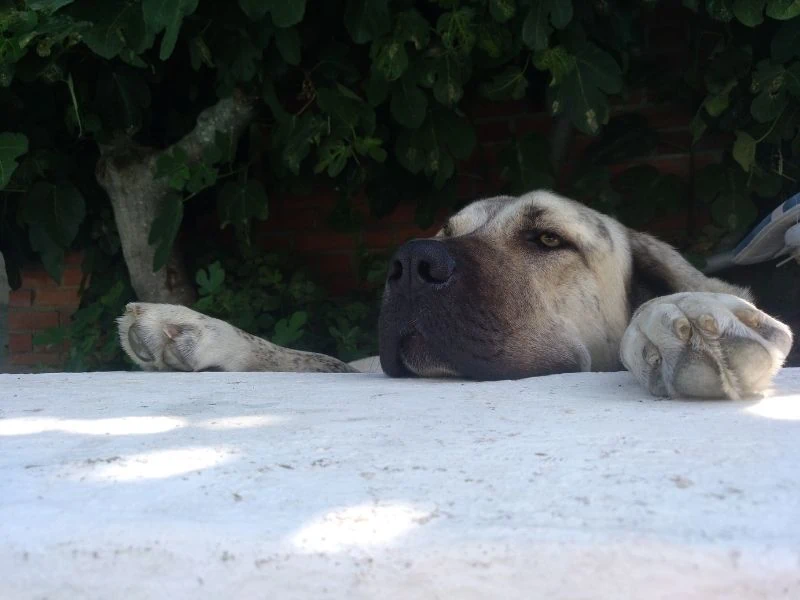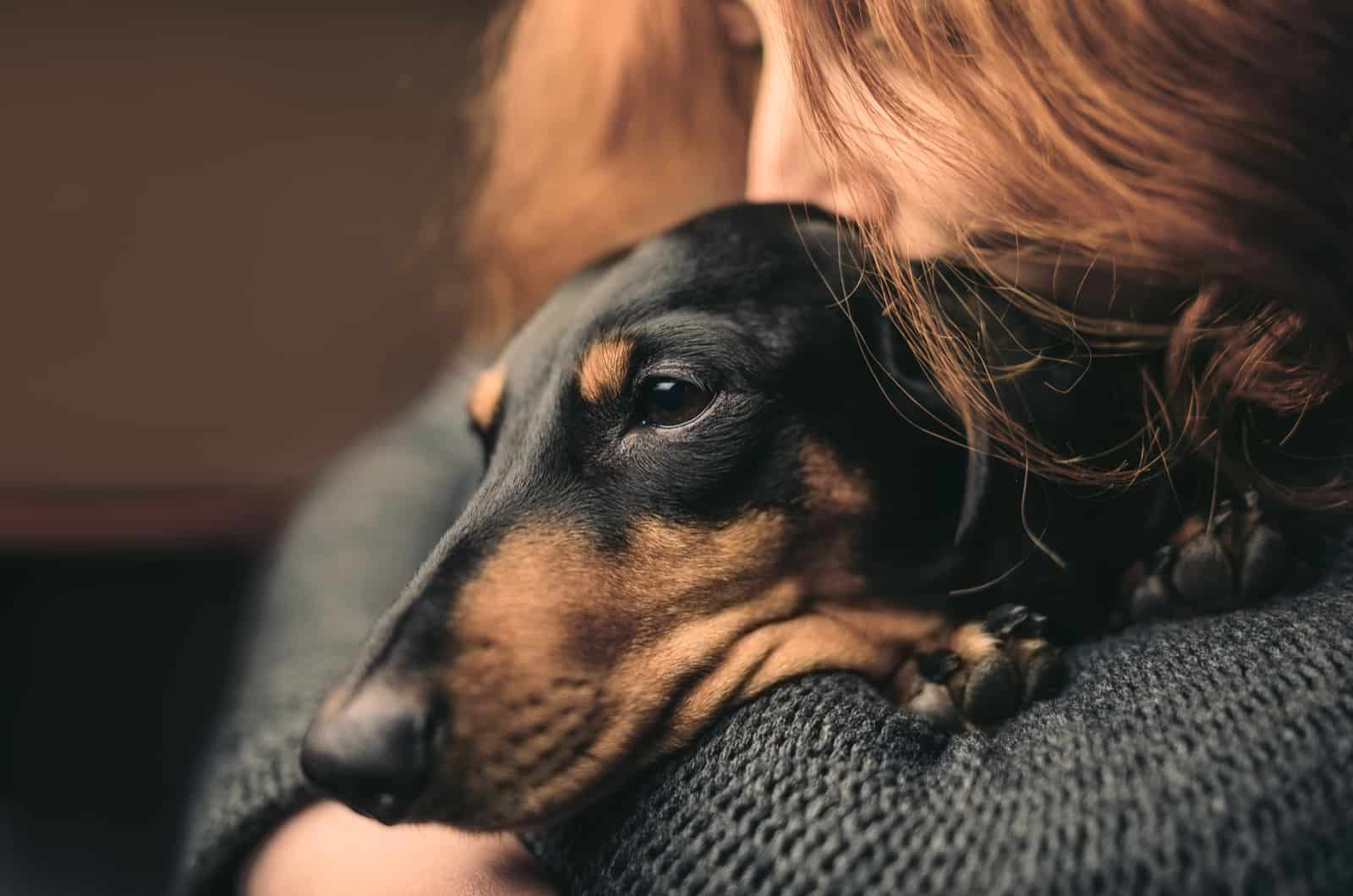Understanding a Dog’s Memory

Although simpler than human memory, dogs can recognize their owner’s voice or associate the chink of your car keys with going somewhere. We call this associative memory, but dogs also have episodic memory. Let’s examine these in greater detail.
Dogs have a short-term memory, lasting up to two minutes, which explains why it’s necessary to act immediately when a dog does something wrong. Any action you take will be ineffective after that time. Interestingly, bigger dogs have a more extended short-term memory than smaller ones (source).
Dogs are very forgiving and want to please, so long as you do not habitually abuse your dog or use excessive force, the dog is unlikely to remember it beyond two days, if they don’t forget within two minutes.
The stronger your relationship is with your dog, the quicker the memory will be erased. Dogs tend to feed directly off your energy, so as long as you exhibit calm and positive energy, they will likely bounce right back.
Associative memory is where the dog connects a sound, smell, the sight of something, or some other sensation to an event, usually one that is pleasant to the dog. For example, if your dog sees their leash in your hand, they can immediately associate this with the happy prospect of going for a walk (source).
Dogs have a wonderful scent and sound memory, and can even associate the fading of their master’s scent with the passage of time. One study found that a dog could associate their owner’s remaining scent level with the time that they would return home.
Several animals show that they have very strong and long-lasting associative memories, such as a dog that remembers the smell of a vet after surgery (source).
The high level of association through sensation also applies to a dog that has been hit. If you strike them more than once in a similar context, they may begin to associate being hit within that context, making this a form of long-term associative memory.
While this is useful for training through the use of mild corrective taps, the use of excessive force can quickly result in the dog associating you with negative treatment, placing your relationship with the dog on the wrong foot.
A Hungarian study in 2016 revealed that dogs also have episodic memory, which is the ability to remember explicit events from the past (source). It differs from associative memory in that it is based on more than simply the relationship between two things.
Episodic memory is one component of declarative memory. With episodic memory, a dog has the ability to “refer back” and recall information about the circumstance or place when you hit them (source).
What the researchers did was have dogs imitate an action by their owners by using the “Do it” command. They next underwent a training session where the dogs had to lie down after seeing a human action, regardless of what that action was.
The objective was to take away the expectation that they had to remember their owner’s action to imitate it. Suddenly, they would switch things up, and the owner would issue the “Do it” command after performing an action. The dogs would still imitate their owner’s move successfully.
They even tried issuing the command over a range of times from one minute to one hour. While the dogs’ accuracy faded over time, they were still able to imitate the action most of the time.
Form Better Habits to Avoid Hitting Your Dog

There may have been a time when you felt you had to hit your dog to prevent them from injuring themselves, someone else, or another dog. For example, if your dog happened to attack another dog or even a person, you would be naive to think that a mild “down Fido” would help.
The dog probably has no idea why you did what you did, but they will likely never even recall the event unless you really overdid it.
This situation also illustrates how important it is to have control over your dog. If you wish to retain control of your dog, you need to remain calm and assertive; otherwise, the dog may take over as the alpha. Learn to use assertive methods such as a deep, unsettling voice while maintaining a calm demeanor.
When necessary, you can use a light corrective tap for discipline, just enough to show your disapproval. If you’ve taken the time to build a relationship with your dog, a display of your disapproval will be all that you require.
For more on this, make sure you read our article, “I Hit My Dog Out of Anger: Where Do I Go from Here?”
Positive reinforcement is a far better way to train a dog when possible by rewarding positive behavior more than punishing negative ones. For further reading on a related topic, see, “How Long Does It Take for a Puppy to Learn ‘No?’“
Do Dogs Hold Grudges If You Hit Them?

Dogs just aren’t built that way. They react in the moment with an emotional response that sends them scurrying into their bed or hiding in a dark corner for a while, but they usually get over it pretty soon.
However, there are two things to keep in mind:
• Abused dogs often have trust issues. When they feel threatened, they may react badly. So, if you smack them, there’s a good chance they’ll bite.
• If you continually use smacking as a means of correction, you will form a fear-based relationship.
Although they don’t hold grudges, dogs will change their behavior after a while if frequently hit. It isn’t that they fully understand the link between their crime and the punishment; they simply learn that they may get a smack when you’re angry.
never hit your dog….GTFOH!!!!
How do I know what my dog is thinking and do dogs hold grudges are two questions I am commonly asked. Feeling ill will or resentment from being insulted or hurt is called a grudge. Humans display strong feelings of anger and dislike for people who treat them poorly, but what about dogs? If they are hurt, do they harbor anger, resentment, and negative feelings in their canine psyche?
Yes, in some capacity, dogs remember something negative that caused them harm. Dogs growl at certain people, wag for others, and snarl at a dog who barked at them one time on a walk. Does it mean dogs hold a grudge? Not necessarily, but our canine friends do host a full range of emotions that keep cognitive researchers busy.
Dogs seem to live in the moment, and science supports this notion to a certain degree. Dogs don’t seem angry or give you the cold shoulder for leaving them alone all day. They celebrate your return as if you are royalty. In their eyes, you are a king or queen.
Whether dogs hold a grudge against people or other animals is a mystery, but behavioral research helps. Alexandra Horowitz, head of the Dog Cognition Lab in California, says the inability to read dogs’ emotions likely begins with our inability to understand our own emotions well. She feels humans grant dogs emotions but only of the human sort. Here’s what I learned about grudges, dogs, and the reality of it all.